Premium Only Content
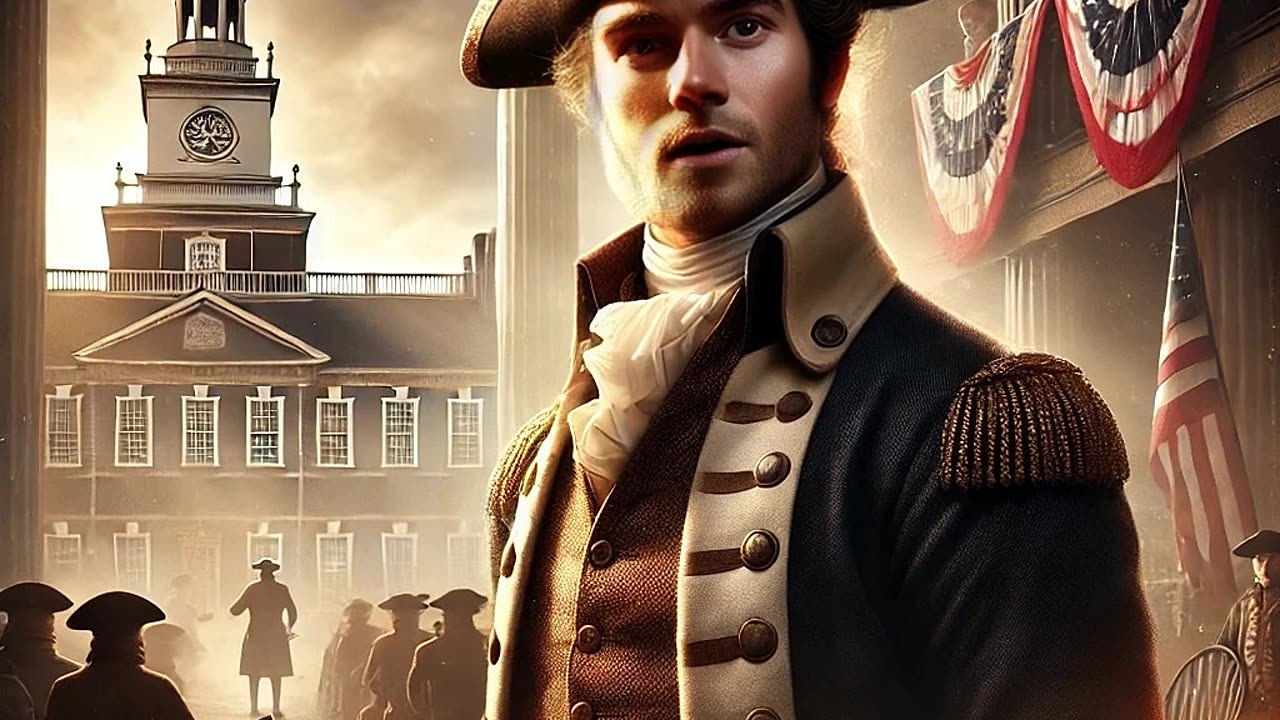
Samuel Adam Tells His Story Organizing the Sons of Liberty and the Boston Tea Party
Presented to you by: http://www.HistoricalConquest.com
Read more on our blog at: https://www.historicalconquest.com/blog
My name is Samuel Adams, and if you know anything about me, it’s probably that I was a strong voice for American independence. But let me take you back to how it all began, so you can understand the events and beliefs that shaped me and, in turn, helped shape this nation.
I was born in Boston, Massachusetts, in 1722. My family wasn’t rich, but we weren’t poor either. My father, Samuel Adams Sr., ran a business and was deeply involved in local politics. He was part of the movement that opposed the British Crown’s control over our local economy. I watched him fight for what he believed in, and that certainly rubbed off on me. I grew up hearing debates about freedom, government, and the rights of the people. It sparked a fire in me.
I went to Harvard College, but not with the intention of becoming a minister, as many might have assumed. Instead, I was drawn to politics and philosophy. I learned to question authority, to challenge systems that were unjust. I found myself naturally stepping into the role of a leader in conversations about the future of the colonies.
By the time the British began imposing taxes and acts like the Stamp Act in 1765, I had already started speaking out. I organized protests and helped found the Sons of Liberty, a group of men dedicated to resisting British rule. We saw these taxes as a violation of our rights. After all, how could we be taxed without having a voice in the British Parliament? "No taxation without representation" wasn’t just a slogan—it was a fundamental principle. I helped organize protests against these laws and pushed for boycotts of British goods. This wasn’t just about tea or stamps; it was about our right to self-governance.
When the Boston Massacre happened in 1770, I made sure it wasn’t forgotten. Five men died at the hands of British soldiers, and I used the event to rally people to the cause. We were being oppressed, and the Boston Massacre was proof of it. The Crown couldn’t just send troops into our city and expect us to bow down.
And then, of course, there was the Boston Tea Party in 1773. The British had passed the Tea Act, and once again, they thought they could force us to buy their tea and pay their taxes without our consent. We had had enough. One cold December night, my fellow patriots and I, disguised as Mohawk Indians, boarded British ships and dumped 342 chests of tea into Boston Harbor. It was a bold statement: We would not submit to tyranny.
But this wasn’t all about acts of defiance. I believed strongly in the power of words and ideas. I helped set up the Committees of Correspondence, a network that connected all the colonies so we could communicate and coordinate our resistance. I knew that if we wanted freedom, we needed to stand together, united in purpose.
When the British responded to the Boston Tea Party by passing the Coercive Acts, or what we called the Intolerable Acts, they tried to break our spirit by closing down Boston Harbor and placing Massachusetts under military rule. But this only strengthened our resolve. It was time to take a more drastic step. In 1774, I attended the First Continental Congress in Philadelphia as a delegate from Massachusetts. We debated and argued, but eventually, we decided that it was time to prepare for armed resistance.
I knew war was coming. In 1775, the battles of Lexington and Concord confirmed it. I was there, helping to organize the colonial militias. And when the Declaration of Independence was signed in 1776, I knew that everything we had fought for was finally being put into words. We were no longer subjects of the British Crown; we were free citizens of a new nation.
I served in the Continental Congress and later became the governor of Massachusetts. I lived to see the United States of America become a reality, and though I wasn’t always in the spotlight, I knew the role I played was vital.
What you must understand is that my fight for independence wasn’t just about breaking away from Britain. It was about a vision of a society where people had the power to govern themselves. Where freedom, justice, and the rights of the individual came first. I was committed to those principles throughout my life, and I hope that commitment continues to inspire others to stand up for what’s right, no matter the odds.
Thank you for listening to my story, and never forget that freedom, once won, must always be defended.
Visit us at: https://www.historicalconquest.com/marketplace
#historicalconquest #history #historical #ancientamerica #ageofexploration #france #french #iroquois #native #nativeamerican #nativeamericanhistory #british #england #religiouspersecution #expansion #truehistory #settlers #settlement #spain #france #French #Frenchhistory #frenchcolonial #frenchheritage #colonizers #colonizer #FrenchandIndianWar #RevolutionaryWar #AmericanRevolution
-
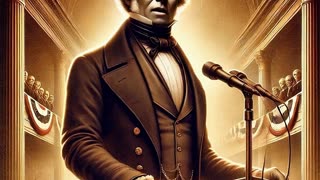 0:59
0:59
The Historical Conquest Channel
7 days agoJohn Quincy Adams Tells His Story Growing Up to Become the 6th President of the United States
11 -
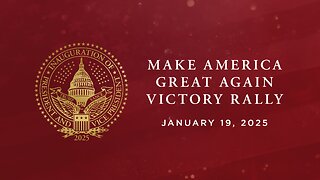 DVR
DVR
GOP
8 hours agoPresident Trump’s Celebratory Victory Rally
81.6K38 -
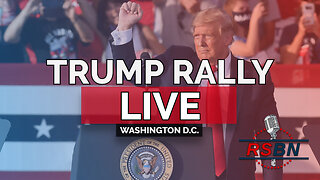 8:46:00
8:46:00
Right Side Broadcasting Network
6 days agoLIVE REPLAY: President Donald J. Trump Holds Inauguration Eve Rally in Washington D.C. - 1/19/25
789K328 -
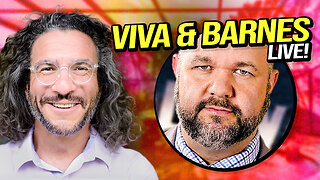 2:27:15
2:27:15
vivafrei
13 hours agoEp. 246: Eve of Trump's Inauguration! Confirmation Hearings Analysis! TikTok Goes Dark & MORE!
134K102 -
 LIVE
LIVE
Vigilant News Network
9 hours agoBill Gates’ New Bioterror Project Exposed | Media Blackout
1,503 watching -
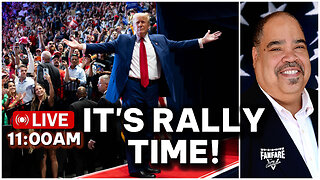 7:56:34
7:56:34
Barry Cunningham
1 day agoWATCH LIVE: TRUMP INAUGURATION MAKE AMERICA GREAT AGAIN VICTORY RALLY - 1 DAY TO GO!!
57.7K50 -
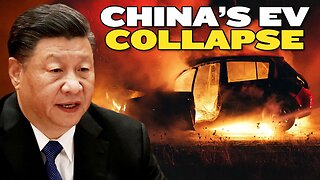 8:36
8:36
China Uncensored
11 hours agoIs China’s EV Industry Collapsing?
190K117 -
 4:17:00
4:17:00
Tundra Tactical
1 day ago $5.36 earnedSHOT SHOW 2025!!!!!! Whats Are We Looking Forward To Most
257K30 -
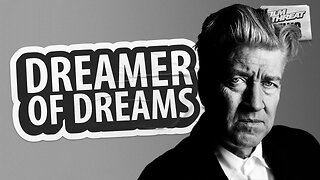 22:53
22:53
Film Threat
1 day agoA TRIBUTE TO VISIONARY DIRECTOR DAVID LYNCH | Film Threat News
109K9 -
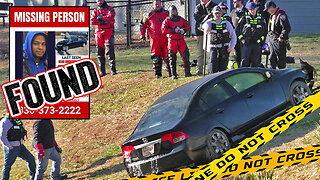 20:30
20:30
Exploring With Nug
1 day ago $2.65 earnedMissing Father of 2 FOUND Underwater In Shallow Pond!
83.4K14